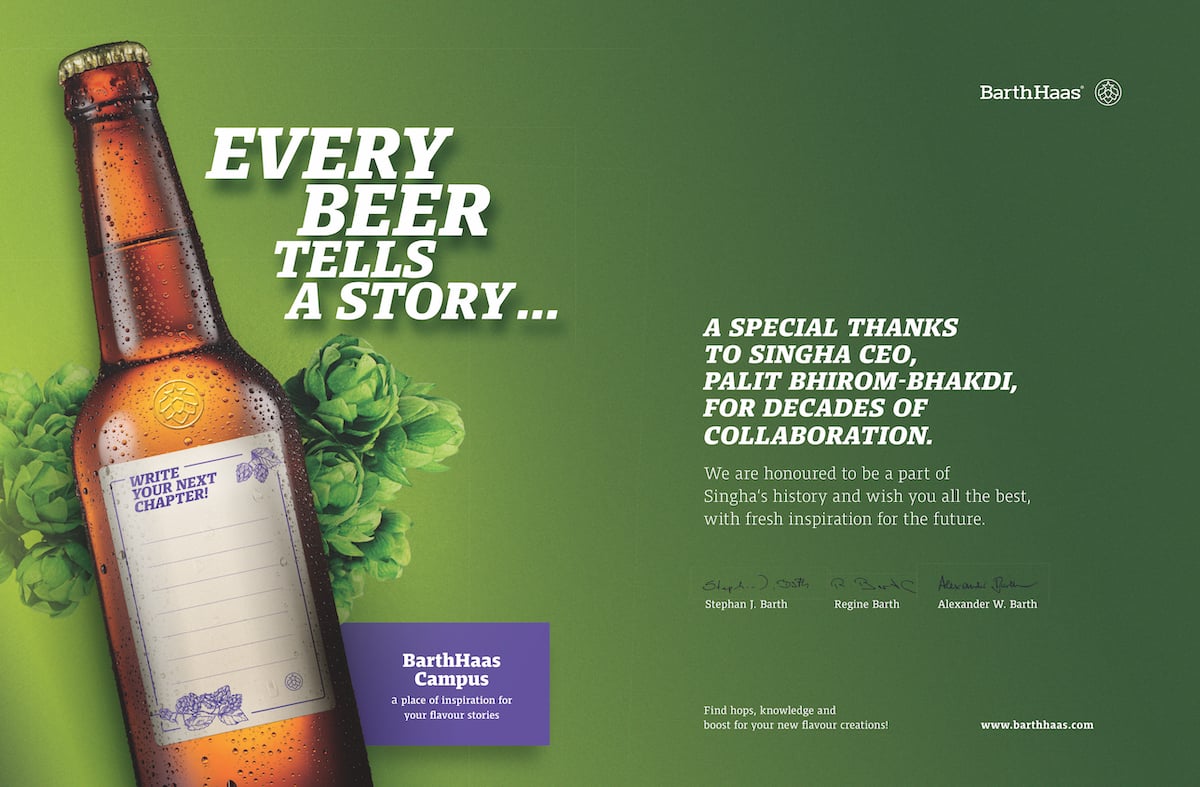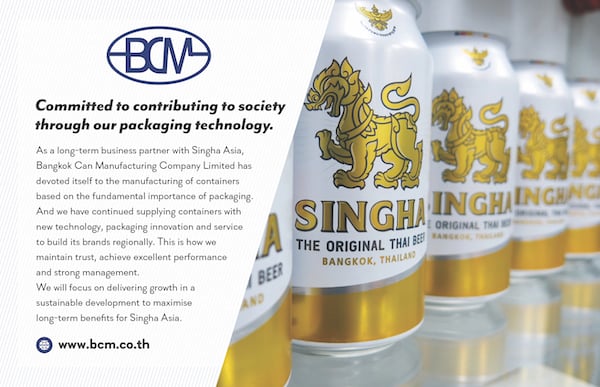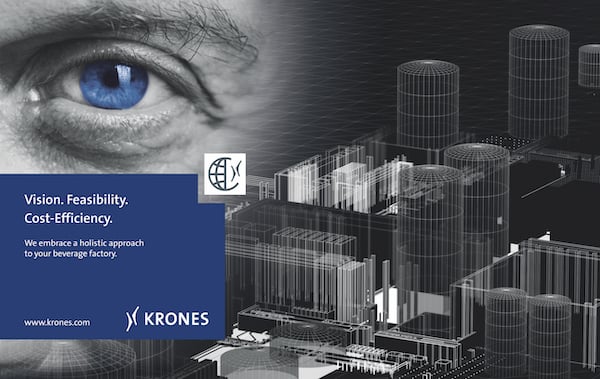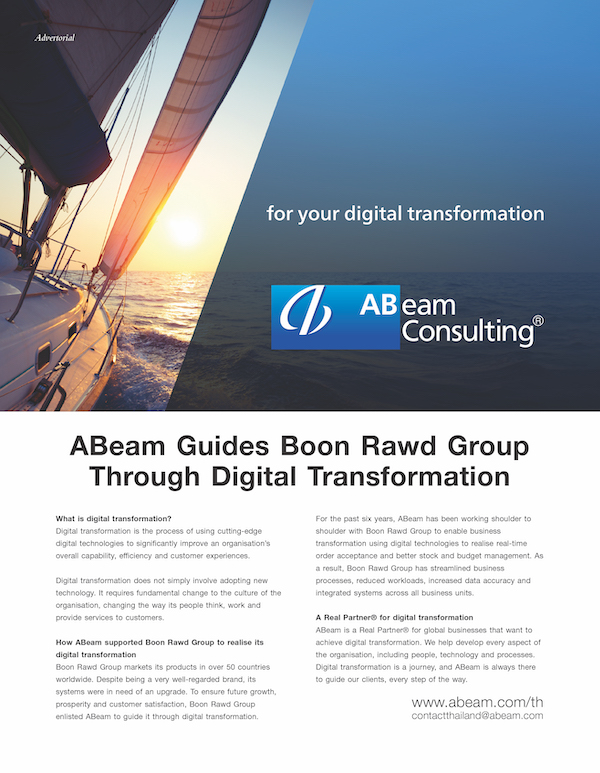Palit Bhirombhakdi never intended to return to Thailand or be in business with his family. But life never entirely aligns with our illusions and so, in 2014, Palit became CEO and a member of the fourth generation to lead the family-held company, Singha Asia.
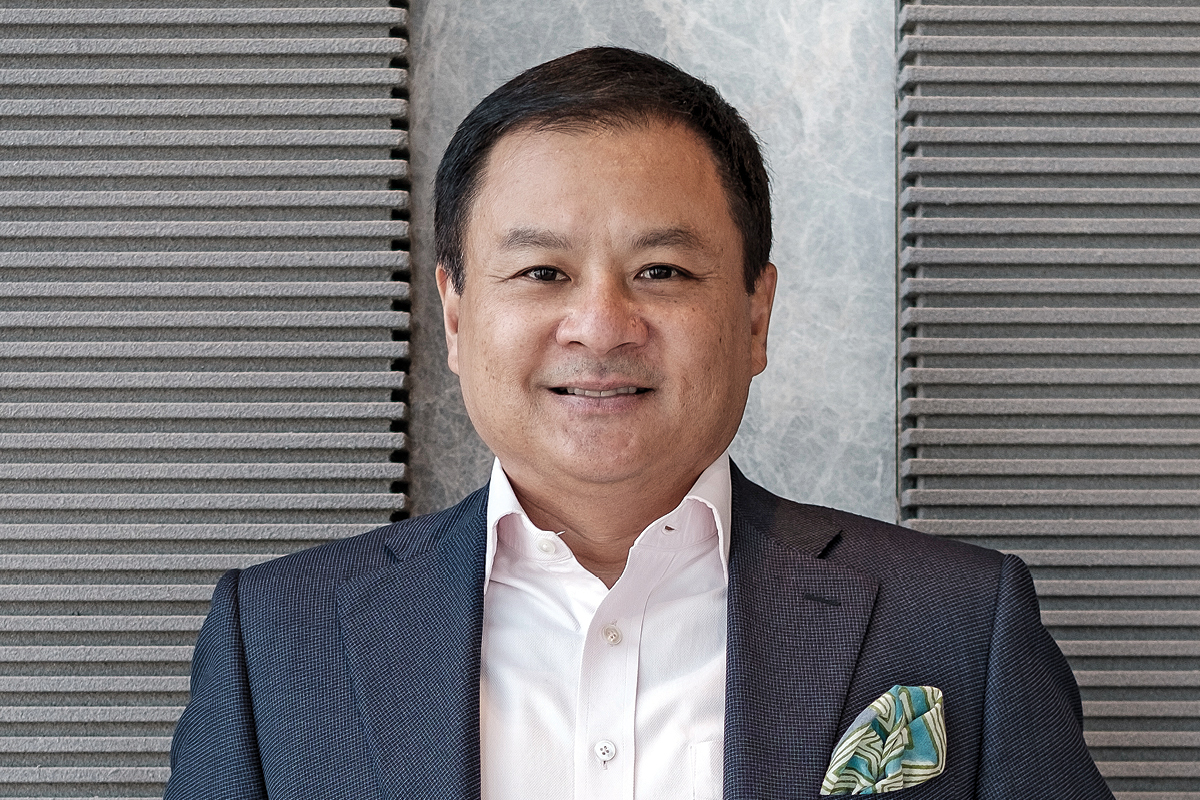
“My earlier attachment to the family was minimal,” he explains. His parents divorced when he was very young,
leaving Palit’s upbringing to his grandparents. “My grandfather was a Supreme Court President, and my grandmother served the Queen (of Thailand). They were strict and disciplined. The first three years of life truly shapes who you are.”
At the age of 10, together with his mother, Palit moved to New York – a city whose culture he did not recognise and a language he did not speak. Facing challenges head on, Palit thrived in school and university. He graduated with a BA in Economics from the University of Michigan, Ann Arbor and then returned to Thailand for his MBA in Marketing at Sasin Graduate Institute of Business Administration of Chulalongkorn University.
After completing his education, Palit started at Coca-Cola (Thailand) in 1990 as Customer Services Manager. He was then promoted to the Division Marketing Communication Manager for South and West Asia Division, Coca-Cola South and West Asia Division Co, Ltd. before joining Boon Rawd – the manufacturer of Singha and Leo Beer – in 1994.
But accepting the position at the leading South-East Asia beer company came with some uncertainties. The job would bring Palit face to face with reality. “When I came back (to Thailand), I didn’t plan to join the family business,” he reinforces.
“American culture is very different from Asian. Also, in an Asian family, you have to show respect, and there is a hierarchy. You cannot be outspoken. There were hesitations. However, I was excited. I believed in the business.”
Palit says the beverage industry is dynamic, fun and continually changing. Reflecting on his time at Coca-Cola, he explains that the soft drink was part of his childhood. Coke conveys memories and it’s a drink Palit genuinely loves.
“For me to be passionate, I have to believe in the product,” he says. “I was stifled and afraid of the working style (there) and did much thinking, but I wanted to help the business make a difference.”
When Palit joined Boon Rawd, there were many things he wanted to bring on board from his experience at Coca-Cola. Before becoming Singha Asia’s CEO, Palit held numerous positions within the group: CEO of Boon Rawd Trading Co, Managing Director of Boon Rawd Trading International Co, and Managing Director of Boon Rawd Asia Beverage Co.
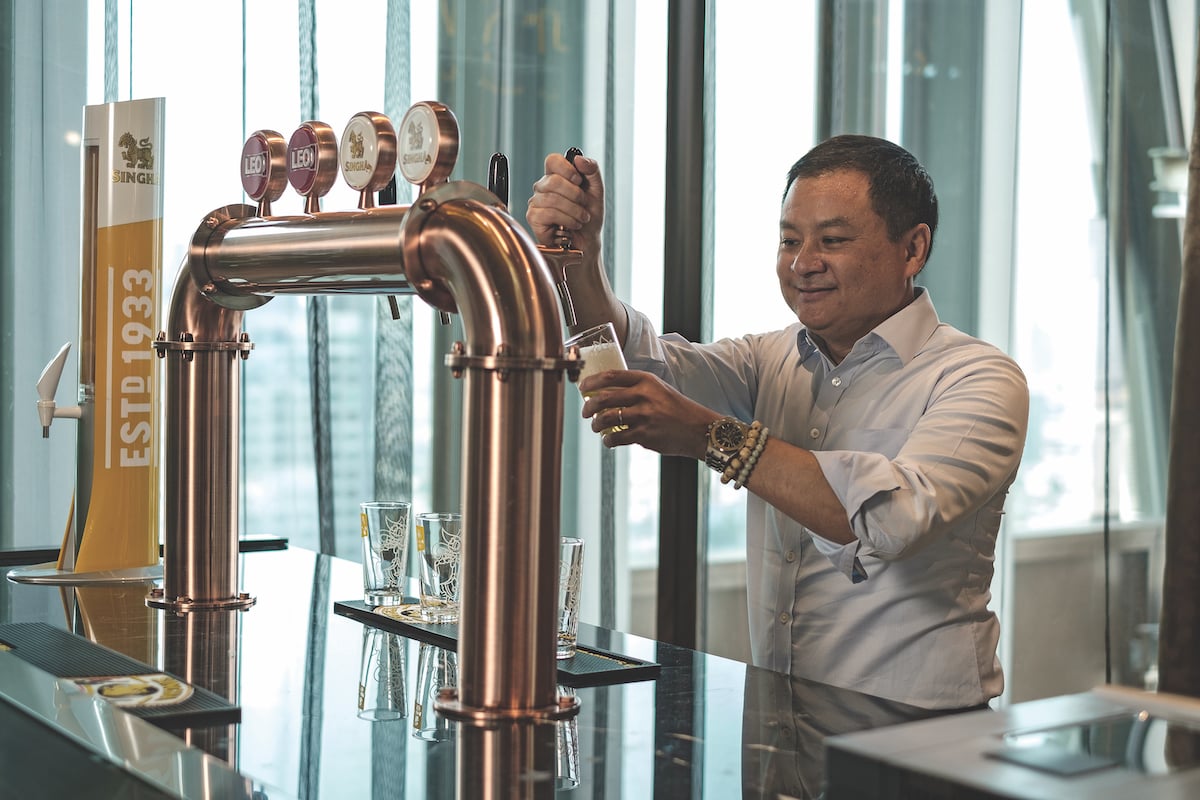
Growth of Thai beer
Founded in 1933 by Palit’s great-grandfather, who was 60 years of age and had no prior knowledge of beer, Boon Rawd Brewery started out of ambition and entrepreneurial instinct. Boon Rawd, recognised as Thailand’s first brewery, creates products under brand names such as Singha, Leo, Purra, Boonrawd Farm, Pundee and Masita.
The business has since diversified into areas of manufacturing, packaging, glass solutions, real estate, as well as food and restaurants. Boon Rawd Brewery began exporting Singha in the early 80s, and is now available in more than 50 countries, and counting.
The ‘Singha’ is an Asian lion, a powerful creature in Thai tradition. The lion symbolism was inspired by one of the four great lions in Thai literature, which Thai people believe to be the king of Himmapan Forest. Singha’s current icon is the gold of Bandhu Rachasri lion – a refined version of the former red lion.
The Garuda on the bottle’s neck displays Boon Rawd Brewery’s royal approval, which is rare and granted only to companies with a longstanding integrity and commitment to society. King Rama VII signed the royal warrant. At that time, the Garuda symbol signified the highest honour for companies. The Bhirombhakdi family proudly presents this iconic symbol on all office buildings, factories and on every Singha product tag.
Singha Asia was established in 2015 as a wholly owned subsidiary of Boon Rawd in order to expand its regional footprint. “In Thailand, we are a 50/50 market: 50% beer and 50% spirits,” Palit explains. “Vietnam is 98% beer.”
The past 20 years has brought with it much change in the alcohol industry, with consumers starting to not only drink better but also less.
Addressing the growing craft beer sector, Palit says Thailand’s relationship with craft beer is increasing – slowly. Looking at South-East Asia, he says: “We have been fortunate that we work in underserved markets such as Laos, Cambodia and Vietnam.”
This means that there is still space for new products, growth and curious customers. To broaden its craft beer reach, Singha has invested in Thailand’s largest craft brewery, Full Moon Brew Works, and is focusing on developing different beer types.
“Alcohol consumers have become more educated and sophisticated,” Palit points out. “Even though you still drink, you drink better.” Market research from Euromonitor International suggests that 2018 was a year of growth for Thailand’s beer sector due to “ongoing premiumisation and consumers paying more attention to quality than quantity”.
The report also indicates that, for a second consecutive year, domestic premium lager and imported premium lager were the best performing categories in both total volume and current value terms.
There has also been a lifestyle change among people worldwide. More and more are choosing to live a healthier lifestyle and make health-conscious lifestyle choices. This has not gone amiss among the brewers. Lighter and non-alcoholic beer as well as non-alcoholic beverages are increasingly edging into the market space. To serve those consumers, Singha has expanded its non-alcohol products with launches of new drink and snack brands.
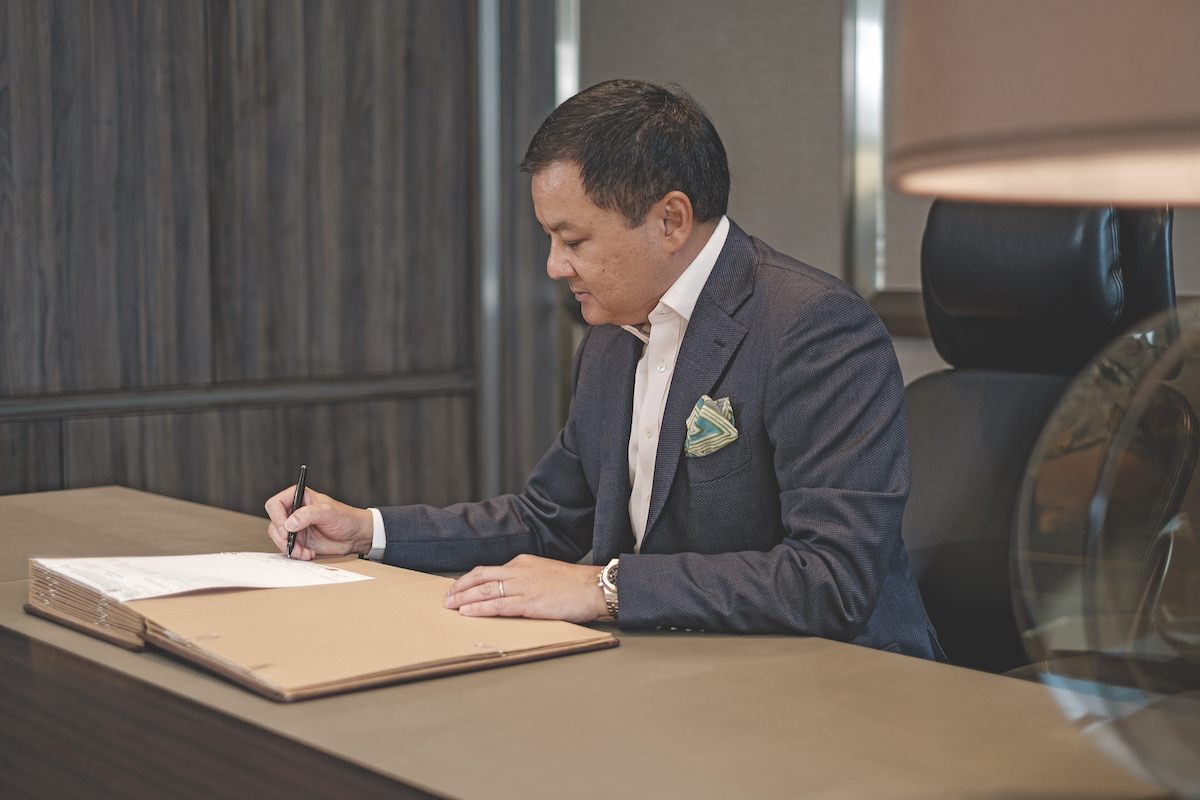
Different culture and heritage
“Family values are the most important to us,” Palit expresses. “We look after our employees, suppliers, partners and customers as if one of our own. We always reinforce that we are a Thai company; Thailand is our home and the Thai people are our family.” Palit also emphasises that the business was built on the foundation of trust. “That’s the sweet part of this company – remaining a family business but operating professionally.”
Aside from the product, it is the people who make the business and environment one of success. “Boon Rawd Brewery is a long-established company,” he says.
“People stay with us for 40 to 50 years. There are different cultures and heritages – bringing with it the pluses and minuses. (At Singha Asia), we have 60 people; it’s a new team that includes eight nationalities. The team is young, energetic and very diverse.”
Fighting back
Before the Asian financial crisis, Boon Rawd Brewery held a monopolistic position in Thailand. The business dominated about 85–90% of market share for 64 years, but then, unfortunately, the tide turned.
“When the financial crisis hit in 1997, we were unprepared, and like a dinosaur, we couldn’t move,” Palit shares. “Everything was wrong. In three years, we went from about 90% to 22% market share.”
In an attempt to revive the business, an internal sales team was set up. It grew exponentially from just Palit to a group of 1,200. “Not many brands die and then return from the grave,” he says.
“Not many brands die and then return from the grave.”
The strict regulation of beer sales in Thailand makes it challenging for breweries to operate. Part of the regulations is the inability to promote or advertise alcoholic beverages.
“We had to walk a different path and use more localised tactics, such as walking the streets,” Palit explains. “We now own 70% of the market.”
Attributing the comeback to “determination and perseverance”, Palit praises the team for coming together. “It was amazing – nobody thought of themselves,” he says. “Nobody knew what tomorrow would bring and whether the company would continue to operate. A company is just brick and stone. The soul of the business is the people. We went through a crisis that shaped our people, and shaped who we are today.”
“The soul of the business is the people. We went through a crisis that shaped our people, and shaped who we are today.”
Like his great-grandfather, Palit tapped into his own entrepreneurial instinct. He decided to promote the business through events, activities, pop-ups, community gatherings, music – anything that would allow the company to reach the heart of the consumer.
Singha organises about 20,000 to 30,000 events a year across Thailand, Myanmar, Laos, Cambodia and Vietnam. “It’s a lot of work,” he adds. “We don’t do the big heavy promotions, but we do these little activities that truly touch the end consumer.”
One of the recent campaigns has been the push for Singha awareness across South-East Asia. The campaign positioned Singha as Asia’s global premium beer with the tagline, ‘Fortune favours the firsts. Start it with Singha.’ The campaign aims to motivate consumers to make the first move on their passions and dreams.
The movement rolled out in several phases beginning with outdoor, print and digital executions. The new visual experience featured prominently in venues serving Singha, across bar signage to installations, glassware, fashion and merchandise.
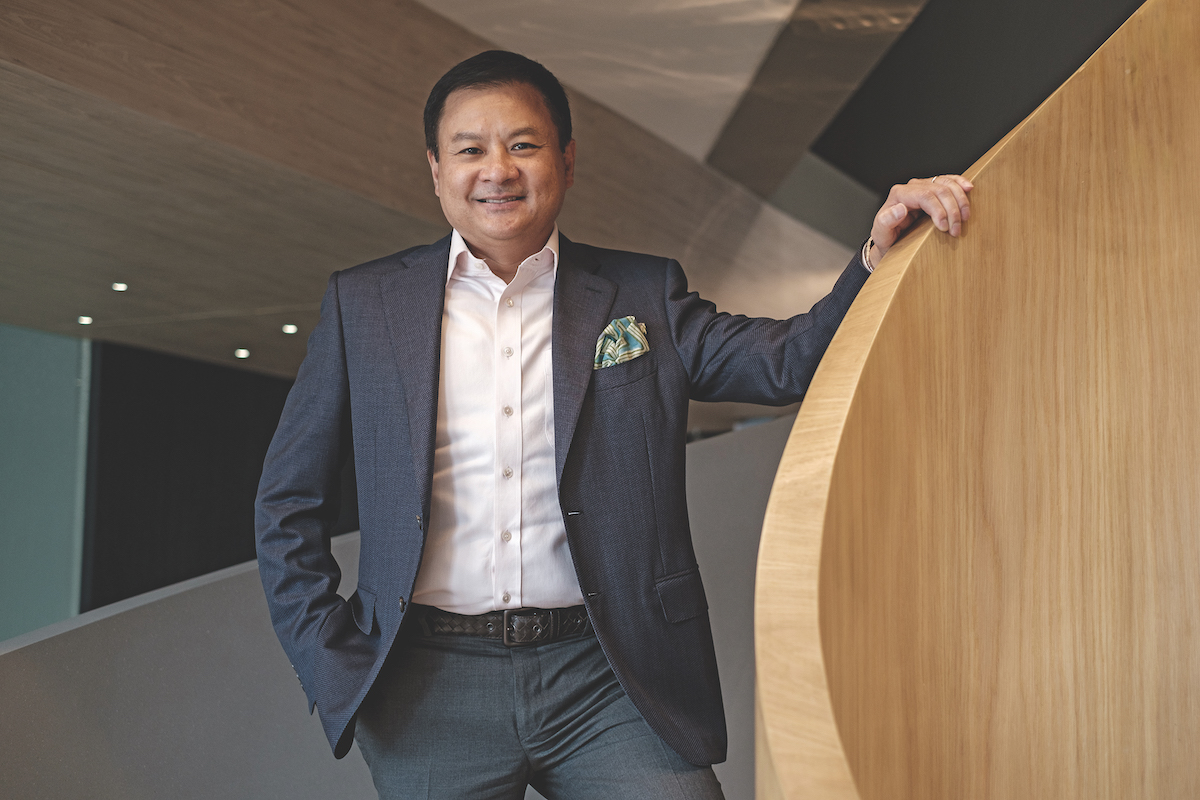
Singha presence
Singha’s focus markets are Singapore, Cambodia, Laos, Myanmar, Vietnam and Malaysia, the last of which proves to be a complex sector due to lack of accessibility and a strict religious government. Malaysia is an Islamic state.
“We work in unpredictable and volatile environments. We’ve got a double whammy in a way because of all the political backgrounds and their current evolution,” Palit explains. “It’s a challenging industry.”
The focus going forward is to aid those six countries and their underserved 200 million consumers. “Capital consumption is still relatively low in these countries,” Palit says. “We try to localise the brand by localising the team and the production. Beer is a very nationalistic product. It triggers a sense of pride.
“Beer is a very nationalistic product. It triggers a sense of pride.”
“Scan the globe and I don’t think you will see many countries, maybe aside from the United Kingdom and Malaysia, where an international beer brand is number one.” What Palit says rings true: think of Japan, and Asahi comes to mind; think of America, and Budweiser appears. Indonesia is undoubtedly Bintang.
The Thai market also remains significant. “What we have done differently is instead of being consumer focused, we’re now customer driven,” Palit explains. “We’re not a large company, and we don’t pretend to be. In Thailand, we’re number one in beer, soda and water. But outside of Thailand, we don’t pretend that we know everything.”
Instead, Singha plays a different game. “We can fight with the big boys such as ABI, Carlsberg, Heineken and others, but we don’t,” he states. “We don’t play in the mainstream, and we don’t play on the consumers. We work on the relationship with customers. People tend to think that consumers make the final decision, but, actually, the wholesalers or retailers play a role in their decision process.”
Looking ahead
In the future, Singha Asia is aiming to become more asset heavy, having production and joint venture ownership in Cambodia, Vietnam and Myanmar, as well as acquiring more breweries. To achieve vast reach, Palit will continue to test various business models and partners to see what suits the family business.
He says the key is to adapt and localise the needs of each entity. “Our game plan is to be either number one or two, and we’re still working towards that,” he says. “Localisation will get us there.”
Singha is also in the tourism business, with a large portion of consumers being tourists and visitors. The strict regulations and hefty fines surrounding alcohol consumption and promotion are not only penalising the visitors but, ultimately, also the country and its opportunity to strive.
Palit confirms that there is an issue with drink driving in Thailand, and the strict laws are set to put an end to this problem. However, these restrictions are also penalising other industries and businesses.
In the end, each country and business faces similar obstacles. Singha is no different. “The key to success in our business is more branding and market activation,” Palit says. “The only route to marketing growth in the region is by setting up distributorship or wholesaler systems because it’s not cost effective to do it yourself.”
Logistics is another area of focus. Palit explains that Singha Asia, in most cases, outsources. “(Vietnam and Cambodia) have very specific regulations and laws,” he notes. “We try to adapt as we go.”
“We work as a family and continue to instil family values into our growing business.”
This year’s immediate priority will be innovation, Palit says. “We do both beer and beverages, and there is highly competitive marketing investment. So innovation is what we’re focusing on now,” he says. “We are also focusing on new product development because customers across different countries have different tastebuds and needs.
“We have approximately 12 new product developments across beer, alcoholic and non-alcoholic beverages. We’re also trying to move outside of the alcohol sector. There’s space left in the other beverage segments, such as coffee, tea and energy drinks, so consumers will see something new in early 2020.”
There will always be a market for beer and water, but Singha is more than that. It’s a family. “In the beer business, there’s no company of this size,” Palit confirms. “We work as a family, and continue to instil family values into our growing business.”
Proudly supported by:
